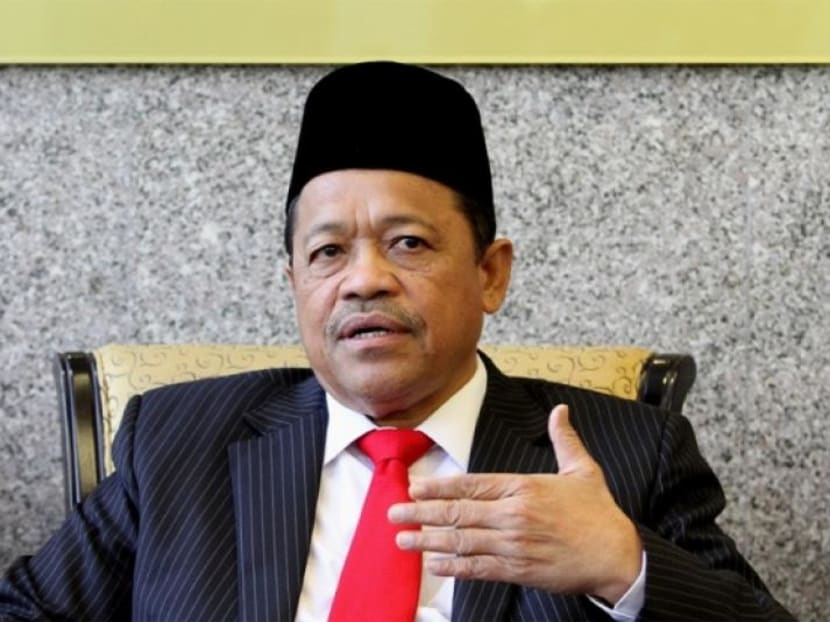KL atheist gathering stokes fire of religious intolerance
Earlier this month, a gathering of atheists in Kuala Lumpur caused an uproar among members of the Muslim community, continuing the trend of conservative and religious issues spilling into the public domain.
Earlier this month, a gathering of atheists in Kuala Lumpur caused an uproar among members of the Muslim community, continuing the trend of conservative and religious issues spilling into the public domain.
The gathering was highlighted by pro-Islam blogs and websites, resulting in violent threats against the atheist group, while the government has responded to the complaints by promising to investigate the issue.
Mr Shahidan Kassim, a Minister in the Prime Minister’s Department, suggested that atheists should be hunted down as they have no place in Malaysia under the Federal Constitution.
Pressure from conservative Muslims seems to have informed a few government decisions.
This month has also seen the abandonment of reforms to the Law Reform (Marriage and Divorce) Bill 2016 that would have prohibited the religious conversion of children to Islam with the consent of just one parent.
The amendment was withdrawn following strong criticism from conservative Islamic groups. This is in addition to the recent banning by the Home Ministry of eight books for not conforming to the teachings of “Sunnah Wal Jamaah”, the mainstream Islamic view in Malaysia.
In East Malaysia, the Sabah fatwa council moved to ban 16 deviant teachings, ranging from the Hizbut Tahrir group to Shi’ism, while also banning the undefined and rather vague concepts of “liberalism” and “pluralism”.
A study by the Pew Research Centre that indicated religious practices in Malaysia are highly controlled by the state, on a par with countries such as Russia and Saudi Arabia.
The state control of religion has been prevalent since the creation of the Islamic bureaucracy in the 1980s, a by-product of the political “Islamisation race” between the United Malays National Organisation (Umno)and Parti Islam Se-Malaysia (PAS) to gain favour among Malays.
Religious institutions have been steadily expanding their jurisdiction, increasing their budgets, and growing their influence on society.
The centrality of Islam in Malaysian public life has been on the rise, particularly in the past decade.
Although the issue of religion cannot be divorced from its importance in politics, particularly how it has been co-opted by parties such as Umno and PAS to secure votes from their Malay base, rarely do we consider the impact on society of a top-down approach to religion over the past 20 years.
Although there is definite encouragement from the government and ministers, religious conservatism and negative reactions over religious issues are now occurring “organically”, without prodding from authorities.
Importantly, there is not anything necessarily wrong with conservatism per se; if an ethnic or religious group opts to adopt a more conservative outlook, it is their prerogative to do so, as long as it does not infringe on others.
In recent years, however, it is not so much a renewed conservatism that has contributed to public discord, but rather a growing intolerance of alternative interpretations or schools of thought of Islam.
Such alternatives are usually branded and generalised as “deviant” or liberal.
Social media and the Internet generally amplify these angry and dissenting voices, making issues out of seemingly inconspicuous matters, such as whether hotdogs should be renamed, or whether a gold medal gymnast’s attire is appropriate.
The anger directed at the atheist gathering is the most recent example of such religious intolerance. It may be a particularly sore point for Malay Muslims, as apostasy is a tricky subject.
Although there is no compulsion of belief in Islam, this is hardly practised, especially in Malaysia.
Five states prohibit apostasy, while other states prescribe jail sentences, fines, and stints in religious rehabilitation centres.
Such a strong stance is perhaps taken out of fear of a domino effect, or that acknowledging apostasy further encourages others to opt out of the religion.
Regardless of this, however, the position of the government and religious institutions serves to reinforce the views of a conservative public, whose outcry over the issue has been, at times, dangerously violent.
Disagreements over apostasy should not descend to the level of calling for the death of apostates.
Such vehement opinions risk public safety, and fracturing society even further.
Religious freedom and tolerance is at a new low for a variety of political and social reasons, while Malaysians continue to be divided along ethnic and religious lines.
Unfortunately, the fallout from this incident will serve only to divide the people. The strong response online from Malay-Muslims against atheists, both Malay and non-Malay, will reinforce existing anti-Muslim sentiment in the country.
By expressing their anger at atheists and the alleged risk they pose to religious harmony, conservative Malay-Muslims exacerbate existing racial divisions in the country.
Meanwhile, a government that has demonstrated a willingness to pander to its Malay electorate may end up persecuting religious minority groups, as it has in the past, with atheists now a likely target.
Inspector-General of Police Khalid Abu Bakar warned atheists against causing any unease among the public.
“Don’t think you can do whatever you want. Be mindful of the law,” he cautioned, and only when asked did he state that if death threats were made against the atheists, they would be duly investigated.
Serious action should be considered against those who have made death threats to the group online.
Individuals are always going to have differing opinions over what they deem to be right and wrong, but when public safety becomes an issue, perhaps the government should opt to not perpetuate the animosity, but seek to quell the fire and bridge the ruptures in society.
ABOUT THE AUTHOR:
Rashaad Ali is a Research Analyst with the Malaysia Programme at the S. Rajaratnam School of International Studies, Nanyang Technological University.







